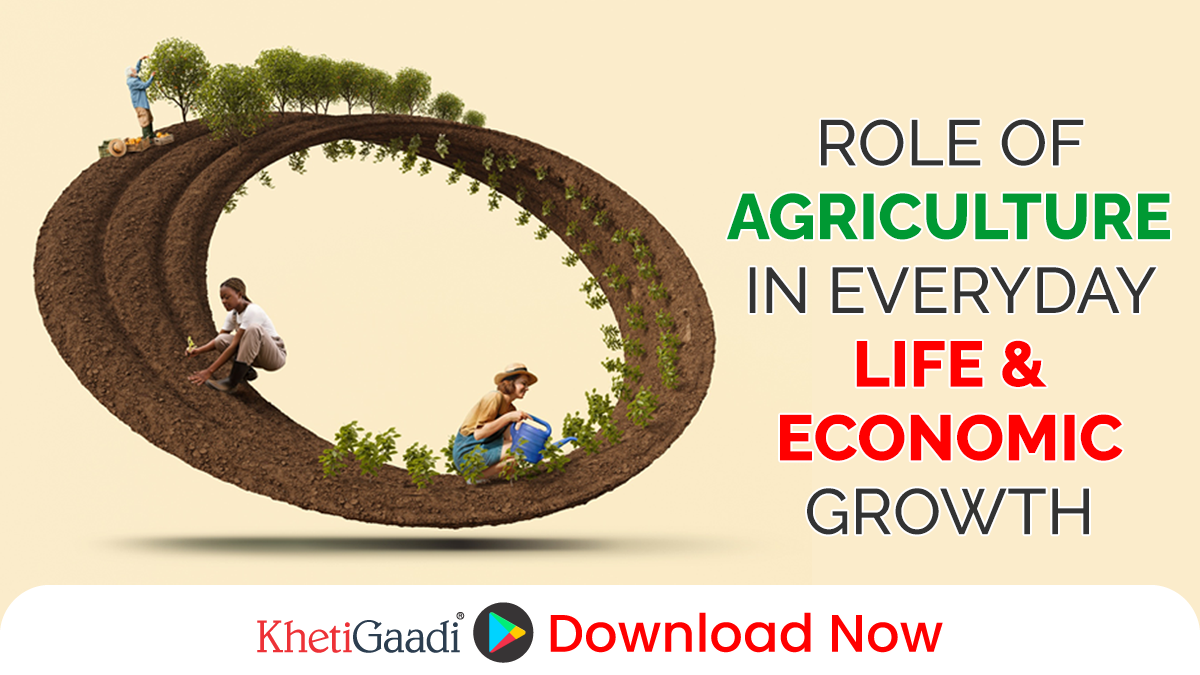Agriculture is essential to life as we know it, forming the foundation of societies, economies, and individual livelihoods worldwide. Its impact is far-reaching—from food production and economic growth to community welfare and environmental sustainability. In this blog, we’ll dive into why agriculture is so vital, what it encompasses, its role in everyday life, how it affects the economy, and why it’s crucial for the future. We’ll also cover best agricultural practices, smart tips for profitable agriculture, and success stories that showcase agriculture’s power to transform lives.
What Is Agriculture?
At its core, agriculture is the science and art of cultivating soil, growing crops, and raising animals for food, fiber, and other resources vital for sustaining human life. Agriculture also includes the development of various practices, tools, and techniques to improve crop yield, conserve resources, and protect biodiversity. Its traditional roots go back thousands of years, but with modern technology, agriculture has evolved into a high-tech industry that continues to innovate and adapt to meet the growing needs of an expanding population.
Why Is Agriculture Important?
The significance of agriculture extends beyond providing food. Here are key reasons why agriculture remains essential:
- Food Security: Agriculture is the primary source of food, feeding billions of people worldwide and ensuring nutritional sustenance.
- Employment Generation: Particularly in rural areas, agriculture is a significant source of jobs, providing a livelihood for over 40% of India’s population.
- Sustainable Resource Management: Properly managed, agriculture can promote conservation and sustainable resource use, preventing soil erosion and protecting water sources.
- Economic Development: Agriculture supports numerous industries like food processing, retail, and transportation, contributing substantially to national GDP.
- Cultural Preservation: Agricultural practices preserve cultural heritage and traditions, promoting rural life and knowledge transfer across generations.
How Is Agriculture Important?
Beyond food production, agriculture supports infrastructure, innovation, and environmental sustainability. Here’s how agriculture influences various aspects of society:
- Economic Stability: Agriculture is a backbone for rural economies, providing steady income and job security. Through export revenues and job creation, it stabilizes communities and boosts overall economic health.
- Technological Innovation: From seed technology to climate-smart practices, agriculture continuously adapts to new innovations that increase efficiency and resilience.
- Environmental Impact: Agriculture has the potential to impact the environment positively. Sustainable farming practices, such as crop rotation, integrated pest management, and water conservation, reduce the carbon footprint and preserve ecosystems.
Importance of Agriculture in Everyday Life
Agriculture’s influence on our daily lives is profound and far-reaching, affecting everything from the food we eat to the products we use. Here’s a closer look:
- Nutrition and Health: Fresh produce, grains, and proteins sourced through agriculture are essential for a balanced diet and good health.
- Clothing and Textiles: Natural fibres, such as cotton, hemp, and wool, come from agriculture, providing materials for clothing, furniture, and household items.
- Medicinal Resources: Many medicinal plants are cultivated in agriculture, supplying ingredients for traditional and modern medicines.
- Biodiversity and Recreation: Agricultural land often includes natural habitats, providing recreational opportunities and conservation of local flora and fauna.
How Does Agriculture Affect the Economy?
Agriculture has a direct impact on economic growth, particularly in developing countries where it plays a key role in generating income and improving living standards. Here’s how agriculture shapes economies:
- Employment and Income: Agriculture provides employment for millions, particularly in rural communities, where it contributes to poverty alleviation and community welfare.
- Export Revenue: Agricultural products like spices, tea, and textiles form a significant portion of India’s exports, bringing foreign currency into the economy.
- Supply Chain Growth: Agriculture supports numerous industries, including food processing, logistics, and retail, creating a multiplier effect that bolsters economic growth.
- Innovation and Investment: Agriculture attracts investments in technology, infrastructure, and research, fostering economic growth and technological advancements.
Why Is Agriculture Important for the Future?
Agriculture is crucial for sustainable development and the future wellbeing of the global population. Here’s why it is so important for the future:
- Feeding a Growing Population: With the global population projected to reach 9.7 billion by 2050, agriculture must evolve to produce more food sustainably.
- Climate Resilience: Sustainable agriculture practices help mitigate climate change by reducing greenhouse gases, conserving water, and protecting natural ecosystems.
- Economic Diversification: Agriculture offers opportunities beyond traditional farming, such as agritourism, renewable energy, and agribusiness.
- Rural Development: Future-focused agriculture supports rural development, ensuring food security and reducing urban migration.
Best Agricultural Practices for Sustainable Growth
To ensure long-term sustainability and productivity, adopting best practices is critical. Here are some of the most effective agricultural practices:
- Crop Rotation: By rotating crops each season, farmers can maintain soil fertility, reduce pest infestations, and improve crop yield.
- Conservation Tillage: This practice minimizes soil disturbance, improving soil health and reducing erosion.
- Organic Farming: Using natural fertilizers, compost, and biological pest controls, organic farming reduces the reliance on chemical inputs, preserving soil and water quality.
- Integrated Pest Management (IPM): IPM combines biological, mechanical, and chemical methods to control pests in an environmentally friendly way.
- Water Management: Efficient irrigation systems like drip and sprinkler irrigation conserve water resources and enhance productivity, especially in water-scarce regions.
- Agroforestry: Combining crops with trees or shrubs, agroforestry provides multiple benefits, including improved soil health, biodiversity, and carbon sequestration.
Smart Tips for Profitable Agriculture
For those looking to make agriculture a profitable venture, here are some strategic tips:
- Diversify Crops: Growing multiple types of crops reduces risk and increases the likelihood of market success.
- Embrace Technology: Technologies like precision farming, GPS-guided equipment, and soil sensors can help optimize resource use and increase yields.
- Value Addition: Processing raw products into goods like jams, oils, and dried fruits increases profitability and opens up new markets.
- Market Analysis: Regularly monitoring market trends and consumer demand can help farmers make informed decisions about which crops to grow.
- Collaborate and Network: Participating in cooperatives and farmer networks provides access to resources, support, and knowledge-sharing, helping farmers grow their businesses.
- Government Schemes: In India, schemes like the Pradhan Mantri Fasal Bima Yojana provide financial support and risk management for farmers, ensuring stability in the face of challenges.
Key Success Stories
1. Amul Dairy Cooperative
In Gujarat, India, small dairy farmers formed a cooperative that grew into Amul, one of India’s largest dairy brands. By pooling resources and accessing better markets, these farmers increased their income and set up a system that’s been replicated across the country. Amul’s model has empowered millions of farmers and continues to bring modern dairy practices to rural communities.
2. Zero-Budget Natural Farming in Andhra Pradesh
Farmers in Andhra Pradesh are increasingly adopting zero-budget natural farming (ZBNF), which eliminates the need for costly fertilizers and pesticides. By using cow-based inputs and indigenous seeds, ZBNF practices have resulted in higher yields and soil health improvement, inspiring a growing movement in sustainable farming.
3. Precision Agriculture in Punjab
In Punjab, a group of young farmers has implemented precision agriculture techniques using drones, GPS, and soil health sensors to monitor crops. By making data-driven decisions, they’ve increased yields, reduced costs, and conserved water, setting an example for tech-enabled agriculture that boosts both productivity and sustainability.
Conclusion
Agriculture remains essential for food security, economic stability, and community wellbeing, shaping our lives in countless ways. With sustainable practices and modern technology, agriculture not only sustains the present but also promises a stable, prosperous future. As these success stories show, with the right resources and commitment, agriculture can be a transformative force for individuals and communities alike.
Reference Links
Tags




